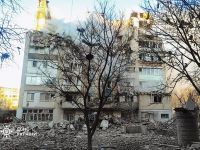UN chief Kofi Annan was to meet Iraqi President Saddam Hussein's second-in-command Monday on the sidelines of the Islamic summit in Doha after an almost yearlong stalemate in efforts to ease decade-old UN sanctions.
The secretary general's spokesman Fred Eckhardt said Annan was to hold talks with Ezzat Ibrahim, the deputy chairman of Iraq's ruling Revolutionary Command Council, with an open agenda. He gave no details.
"The meeting was arranged at Iraq's initiative. The Iraqis want to get things moving on a lifting of sanctions," a diplomatic source said.
"There is a feeling among its sympathizers in the UN Security Council, notably France and Russia, that this is good timing because of the US election process and a lame duck (President Bill) Clinton," he said, asking not to be named.
On the eve of the meeting, Annan said in a speech to the 56-member Organization of the Islamic Conference (OIC), at which Ibrahim is standing in for Saddam, that the only way forward was for Iraq to fall in line with UN resolutions.
He urged Baghdad "to review its position with a view to cooperating with the international community.
"The Iraqi leadership will achieve more through cooperation with the international community, including its neighbors, than through confrontation," Annan said Sunday.
"I deeply regret the continuing suffering of the Iraqi people and share the hopes of everyone present here that the sanctions imposed on Iraq can be lifted sooner rather than later," he said, addressing the growing support for an end to the embargo.
Baghdad has rejected Security Council resolution 1284 passed last December that offers a suspension of sanctions in force ever since Iraq's 1990 invasion of Kuwait in return for its cooperation with a new disarmament regime.
The regime insists its banned weaponry was already dismantled during seven years of UN arms inspections up until the end of 1998 and that the resolution is a ploy by the United States and Britain to keep Baghdad within the sanctions straitjacket.
While refusing so far to even discuss resolution 1284 with the United Nations, Iraq has focused its efforts on a campaign to chip away at sanctions by renewing ties with Arab states as well as air and trading links with the outside world.
With oil prices high and a ceiling on Iraqi oil exports lifted, Baghdad's revenues have shot up, allowing it to lure more commercial partners under the UN oil-for-food deal which authorizes the exports to finance humanitarian imports.
The campaign was boosted by a record turnout at this month's Baghdad trade fair and the planned reopening of an oil pipeline to Syria, while flights into the capital's Saddam International Airport have gathered pace despite a UN air embargo.
But stung by past failures to win official support for Iraq's position at the level of regional or international organizations, Saddam's message to an Arab summit last month and the OIC summit in Doha stuck to the Palestinian uprising.
On the diplomatic front, host country Qatar was leading efforts at the summit to launch a reconciliation process between Kuwait and its former occupier Iraq, a tough task which has been welcomed by the Arab League -- DOHA (AFP)
© 2000 Al Bawaba (www.albawaba.com)







